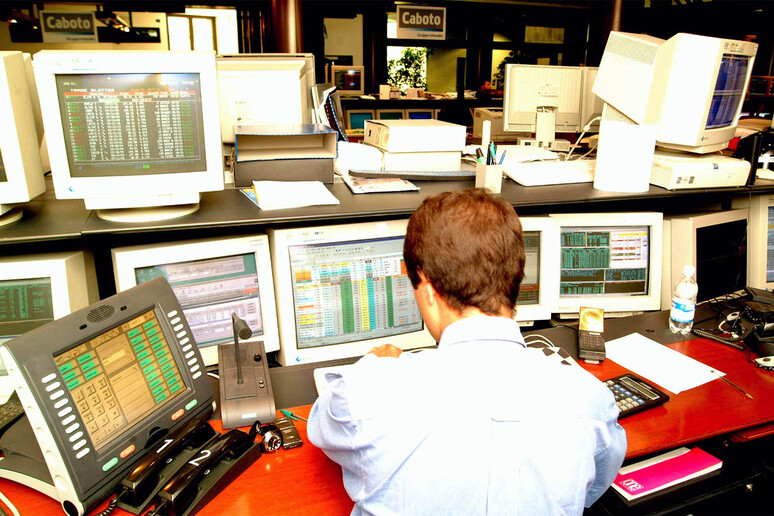It was another turbulent day
on the Milan stock exchange Thursday as external factors like
renewed fears over the Chinese economy and oil prices combined
with skepticism about Italy's deal with the European Union on a
mechanism to resolve non-performing loans (NPLs), driving stocks
down and punishing the banking sector in particular.
The Milan stock exchange's benchmark FTSE Mib index shed
3.49% on Thursday, taking it down to 18,189 points.
It had earlier been down by more than 4%.
The spread between Italian and German 10-year bonds closed
on 111 basis points, six up from Wednesday's 105, in another key
indicator of financial strains.
Other European bourse suffered too, but less so, with
London down 0.98%, Frankfurt off 2.44% and Paris down 1.33%.
European investors were cautious after the U.S. Federal
Reserve yesterday left the door open to further monetary
tightening in March despite slowing growth in the world's
biggest economy since December.
In Milan, banking stocks were battered by the dim view
investors took of the EU deal, with many appearing to think the
"boil" of 200 billion euros in bad loans still had to be
properly lanced.
Amid a flurry of suspensions for excessive losses,
Unicredit, Ubi Banca, Banca Pop Mi, Banca Pop Er e MPS all
suffered heavily.
Among the worst hit were Bpm (-9.8%) and Bper (-7.5%)
while the only stocks to gain ground were in the oil sector: Eni
(+0.2%), Tenaris (+0.3%), Saipem (+3%) and the rights of
Saipem's rights issue up 9.6%.
MPS, despite declaring a profit for the first time in 10
years in 2015, plummetted over 8% amid continued concern for its
high ratio of NPLs.
The bourse has been hit by the investor skepticism about
the agreement Economy Minister Pier Carlo Padoan reached with
the European Commission on a guarantee mechanism, the so-called
'bad bank lite', to help Italian banks offload billions of euros
of NPLs from their balance sheets.
U.S. ratings agency Fitch said the plan, whose details are
still under review, may have a limited impact on improving asset
quality and could have a neutral impact on the lenders' ratings.
The success of the scheme will also depend largely on how NPLs
are valued, Fitch said.
Italy reached the deal for the bad bank light with the
European Commission late on Wednesday.
It envisages a mechanism to manage over 200 billion euros
in bad loans that are weighing on the balance sheets of Italian
banks.
"An agreement has been found with the EU about a guarantee
mechanism for non-performing loans," Padoan said after five
hours of talks with European Competition Commissioner Margrethe
Vestager.
"This completes the Italian tool box for managing bad
loans".
The mechanism will help lenders offload bad loans with the
help of guarantees given at market prices that the EU does not
consider State aid.
Rome and Brussels had been in talks about the possibility
of setting up a fully fledged bad bank to put the NPLs into, but
this ran into problems due to European rules against State aid.
Vestager said she was "very satisfied" at a "very good"
agreement.
Padoan went on to stress that the deal on the public
guarantee for the securitization of the bank bad loans - a
mechanism using asset-backed securities (ABS) similar to that
used in the US subprime loan crisis, only with canny investors
instead of know-nothing small shareholders and mortgage holders
involved - will have "no impact" on Italy's budget deficit or
public debt.
ALL RIGHTS RESERVED © Copyright ANSA











